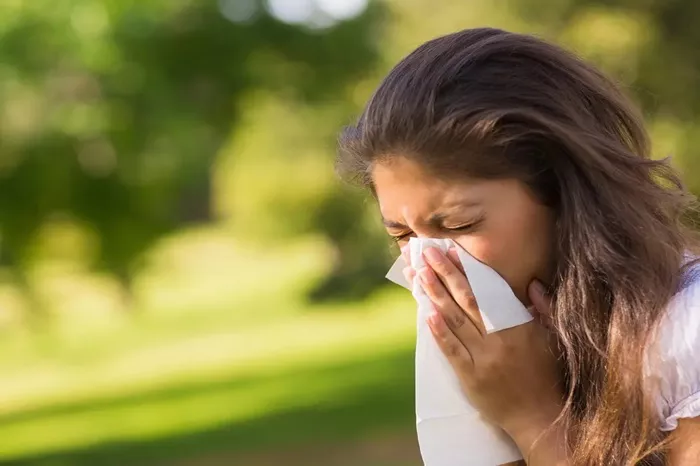Sneezing is a natural reflex that helps the body expel irritants from the nasal passages. While occasional sneezing is normal, experiencing excessive sneezing, particularly in the morning, can be disruptive and uncomfortable. In this article, we explore the potential causes of excessive sneezing in the morning and discuss strategies for managing and alleviating this bothersome symptom.
Overview of Morning Sneezing
For many individuals, waking up to a bout of sneezing is not uncommon. However, when sneezing becomes frequent and excessive, it can indicate an underlying issue that warrants attention. Excessive sneezing in the morning may occur intermittently or persistently, and it can vary in severity from mild to severe.
Morning sneezing can be accompanied by other symptoms, such as nasal congestion, runny nose, watery eyes, and itching. These symptoms can significantly impact one’s quality of life, affecting sleep, productivity, and overall well-being.
Common Causes of Excessive Morning Sneezing
Several factors can contribute to excessive sneezing in the morning. Identifying the underlying cause is essential for effective management and treatment. Some of the most common causes of morning sneezing include:
1. Allergies: Allergic rhinitis, commonly known as hay fever, is a common cause of morning sneezing. Allergens such as pollen, dust mites, pet dander, and mold can trigger allergic reactions, leading to sneezing, nasal congestion, and other symptoms. Allergies tend to worsen in the morning due to increased exposure to allergens while sleeping.
2. Irritants in the Bedroom: Dust, pet dander, and other allergens can accumulate in the bedroom, triggering morning sneezing episodes. Poor indoor air quality, inadequate ventilation, and dusty bedding or furniture can exacerbate symptoms. Additionally, exposure to cigarette smoke or strong odors can irritate the nasal passages, leading to sneezing.
3. Nasal Irritation: Irritation of the nasal passages can occur due to various factors, including dry air, cold temperatures, and nasal congestion. Breathing through the mouth while sleeping can also contribute to nasal irritation and morning sneezing. Additionally, exposure to pollutants, such as smoke or chemicals, can irritate the nasal passages and trigger sneezing.
4. Viral or Bacterial Infections: Respiratory infections, such as the common cold or flu, can cause inflammation of the nasal passages and lead to sneezing, particularly in the morning. Bacterial sinus infections can also cause morning sneezing, along with other symptoms such as facial pain, headache, and fever.
5. Non-Allergic Rhinitis: Non-allergic rhinitis is a condition characterized by nasal symptoms, such as sneezing, nasal congestion, and runny nose, that are not caused by allergies. Triggers for non-allergic rhinitis may include changes in weather, exposure to strong odors, or certain medications.
6. Morning Cold Air: Breathing in cold air during the early morning hours can stimulate the nasal passages and trigger sneezing. Cold temperatures can cause the nasal blood vessels to constrict, leading to nasal congestion and sneezing.
7. Hormonal Changes: Hormonal fluctuations, particularly during pregnancy or menstruation, can affect the nasal passages and lead to increased sneezing. Changes in hormone levels can cause nasal congestion, mucous production, and irritation, contributing to morning sneezing episodes.
8. Medications: Certain medications, such as nasal decongestants or nasal sprays, can cause rebound congestion and sneezing if used for an extended period. Withdrawal from these medications can also lead to increased nasal symptoms, including sneezing.
Managing Excessive Morning Sneezing
Managing excessive sneezing in the morning often involves identifying and addressing the underlying cause. Depending on the specific trigger, various strategies and treatments may be effective in alleviating symptoms. Some tips for managing excessive morning sneezing include:
1. Identify and Avoid Triggers: If allergies are the underlying cause of morning sneezing, identifying and avoiding allergens can help reduce symptoms. This may involve using allergen-proof bedding, keeping pets out of the bedroom, and using air purifiers to remove airborne allergens.
2. Maintain a Clean Bedroom Environment: Regularly cleaning and dusting the bedroom can help reduce exposure to allergens and irritants that can trigger morning sneezing. Washing bedding in hot water, vacuuming carpets and upholstery, and minimizing clutter can also help improve indoor air quality.
3. Use Nasal Irrigation: Nasal irrigation with a saline solution can help clear nasal passages and reduce nasal congestion, which may alleviate morning sneezing. Nasal irrigation devices, such as neti pots or saline nasal sprays, can be used to flush out irritants and mucus from the nasal passages.
4. Humidify the Air: Using a humidifier in the bedroom can help add moisture to the air, which can soothe irritated nasal passages and reduce morning sneezing. However, it’s essential to clean the humidifier regularly to prevent the growth of mold and bacteria.
5. Practice Good Sleep Hygiene: Establishing healthy sleep habits can help improve sleep quality and reduce morning sneezing. This may include maintaining a consistent sleep schedule, creating a comfortable sleep environment, and avoiding caffeine and electronic devices before bedtime.
6. Consult a Healthcare Professional: If morning sneezing persists despite home remedies and lifestyle modifications, it’s essential to consult a healthcare professional for further evaluation and treatment. Depending on the underlying cause, treatment options may include allergy medications, nasal corticosteroids, or other prescription medications.
Conclusion
Experiencing excessive sneezing in the morning can be disruptive and uncomfortable, impacting one’s quality of life and overall well-being. Identifying the underlying cause of morning sneezing is essential for effective management and treatment. By addressing allergens, maintaining a clean bedroom environment, and practicing good sleep hygiene, individuals can reduce morning sneezing episodes and improve their overall nasal health. If symptoms persist, it’s important to consult a healthcare professional for further evaluation and treatment.
[inline_related_posts title=”You Might Be Interested In” title_align=”left” style=”list” number=”6″ align=”none” ids=”6590,6587,6532″ by=”categories” orderby=”rand” order=”DESC” hide_thumb=”no” thumb_right=”no” views=”no” date=”yes” grid_columns=”2″ post_type=”” tax=””]































